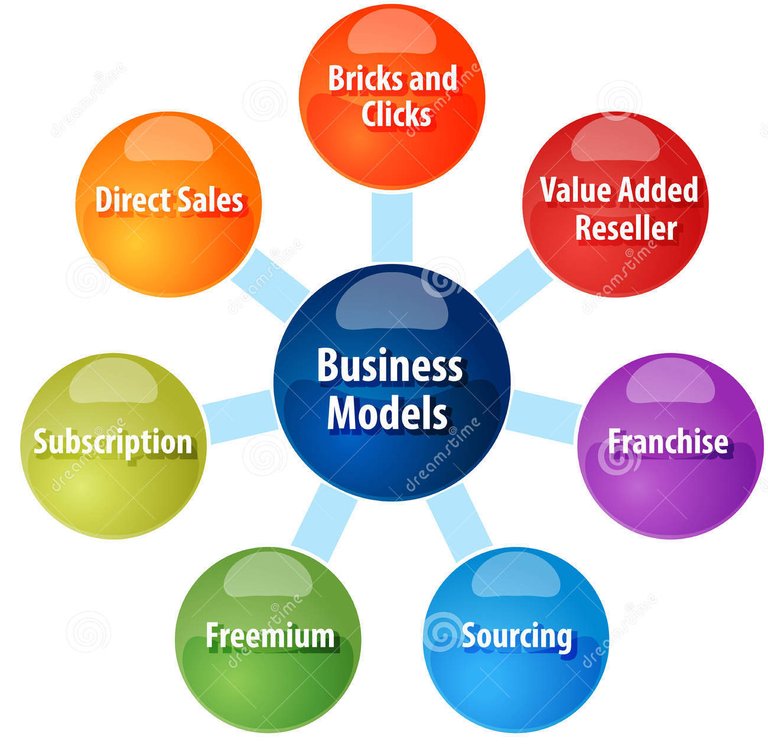 As an important aspect of a comprehensive business strategy, a company's business model is a representation of its core business practices.
As an important aspect of a comprehensive business strategy, a company's business model is a representation of its core business practices.
Despite the size or industry in which a business operates, a business model details how an organization creates and delivers products or services, specific business processes, infrastructure, customer acquisition strategies and the intended customer base. Brick-and-mortar and e-commerce form two categories under which business can operate.
In the current business environment, business models come in a variety of forms that include direct sales, franchise, freemium and subscription models.
DIRECT SALES
Under a direct sales business model, sales of products or services generate revenue through a network of salespeople who sell directly to customers. Typically, no fixed retail location exists under a direct sales business model. Instead, individual salespeople are connected with a large parent company and given the tools to become individual entrepreneurs.
Direct sales takes place through presentations or demonstrations of the product or service in a one-on-one setting or during a hosted party at a prospect's home or business. Business owners in direct sales earn a portion of their sales, while the company providing the product retains the remaining revenue. Companies such as Avon, Arbonne and Herbalife are examples of the direct sales business model.
FRANCHISE MODEL
Under a franchise business model, business owners purchase another organization's business strategy. Instead of creating a new product and the distribution chain to deliver that product to consumers, the franchisee purchases an ownership stake in a business model that has already been successfully developed. The company offering its proprietary product or service, its business processes and its brand is known as the franchisor, and it benefits from a reduction in capital output used to build new locations.
Franchise owners earn a portion of the revenue generated by their locations, and the franchisor collects licensing fees in addition to a percentage of sales revenue from the franchisee. Popular companies that depend on the franchise business model for growth include McDonald's, Subway and Starbucks.
FREEMIUM MODEL
For companies that offer personal or business services via the Internet, the freemium business model is common. Under a freemium model, business give away a service at no cost to the consumer as a way to establish the foundation for future transactions. Companies that offer a basic-level service for free build relationships with customers and eventually offer advanced services as add-ons or advertisement-free options at a cost. The freemium model tends to work well for Internet-based businesses with little customer acquisition costs but high lifetime value. Spotify and Skype both operate under a freemium business model.
SUBSCRIPTION MODEL
Businesses that operate in an industry where customer acquisition costs are high may operate under a subscription or recurring revenue business model. The objective of a subscription business model is to retain customers under a long-term contract and secure recurring revenue from repeat purchase of a product or service.
Companies operating online create subscription models that require the customer to sign up for automatic payment plans, and they may charge a cancellation fee for a contract that ends prior to the preset time frame. Credit monitoring organizations such as Experian and Equifax use a subscription business model, as do utility and phone companies.
source: investopedia.com
Nice post..
Thanks...I appreciate you compliment...
Great post! Selecting a business model 1st is overlooked in a lot of 1st time start-ups. Your business model makes the vision clearer
Yes, it helps get a clearer vision and helps one to set goals that are time bound...